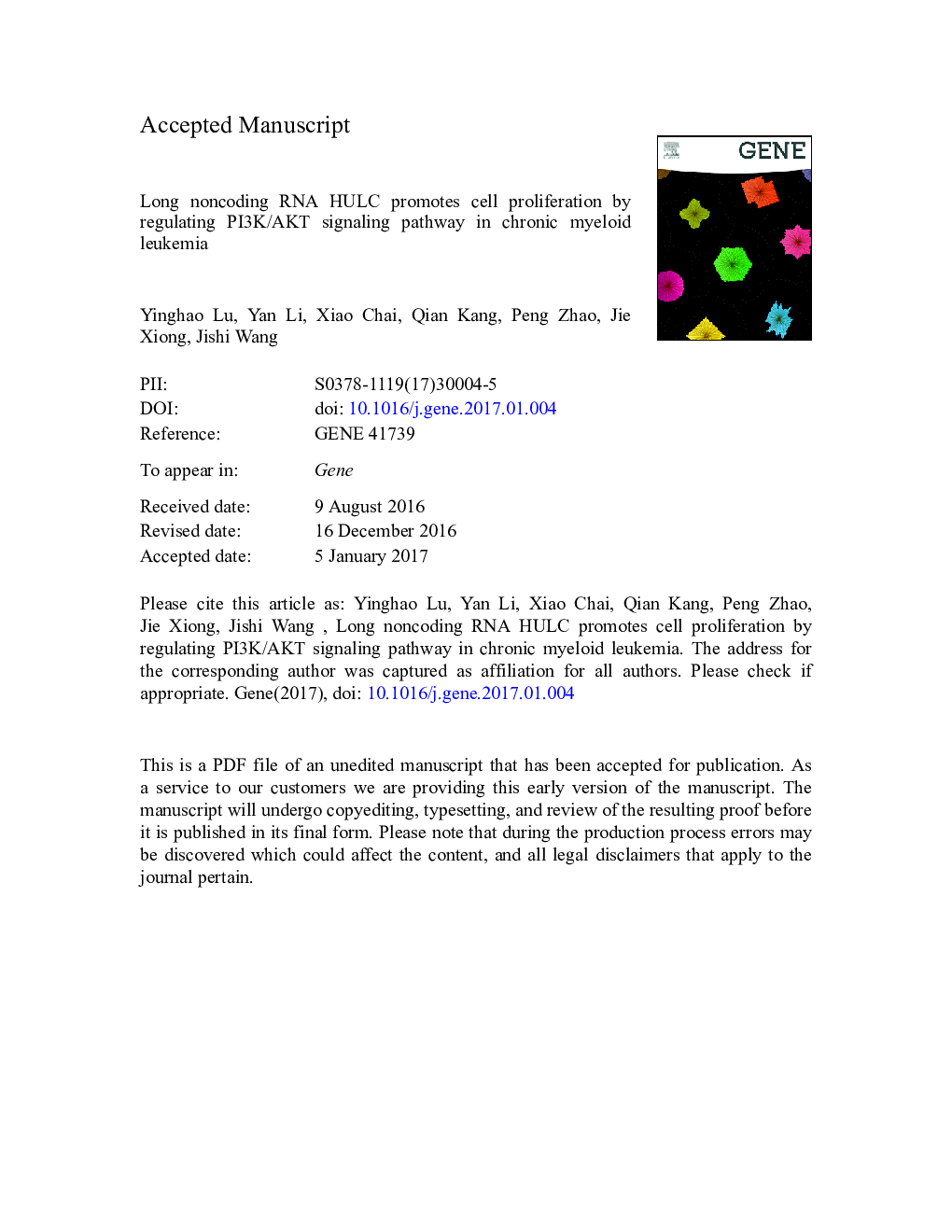| Article ID | Journal | Published Year | Pages | File Type |
|---|---|---|---|---|
| 5589369 | Gene | 2017 | 20 Pages |
Abstract
Aberrant expression of long noncoding RNA (lncRNA) HULC is associated with various human cancers. However, the role of HULC in chronic myeloid leukemia (CML) is unknown. In this study, we found that HULC was remarkably overexpressed in both leukemia cell lines and primary hematopoietic cells derived from CML patients. The increase in HULC expression was positively correlated with clinical stages in CML. Moreover, the knockdown of HULC significantly inhibited CML cell proliferation and induced apoptosis by repressing c-Myc and Bcl-2. Furthermore, inhibition of HULC enhanced imatinib-induced apoptosis of CML cells. Further experiments demonstrated that HULC silencing markedly suppressed the phosphorylation of PI3K and AKT, indicating that enhancement of imatinib-induced apoptosis by HULC inhibition is related with the reduction of c-Myc expression and inhibition of PI3K/Akt pathway activity. Furthermore, HULC could modulate c-Myc and Bcl-2 by miR-200a as an endogenous sponge. Taken together, these results reveal that HULC promotes oncogenesis in CML and suggest a potential strategy for the CML treatment.
Keywords
TKIslncRNAFBSHULCFITCshRNAHOX transcript antisense RNAqRT-PCRCMLlncRNAsc-MycHCCPI3K/AKTshort hairpin RNALong non-coding RNAsmiR-200aquantitative real time PCRfetal bovine serumBlast phasechronic phasefluorescein isothiocyanateChronic myeloid leukemiaTyrosine kinase inhibitorsHepatocellular carcinoma
Related Topics
Life Sciences
Biochemistry, Genetics and Molecular Biology
Genetics
Authors
Yinghao Lu, Yan Li, Xiao Chai, Qian Kang, Peng Zhao, Jie Xiong, Jishi Wang,
